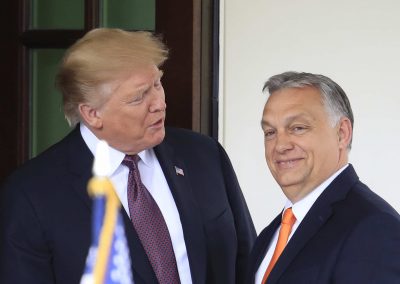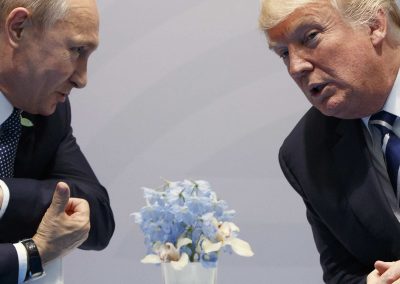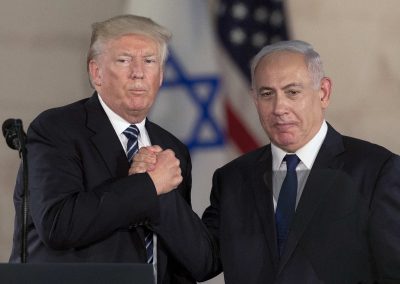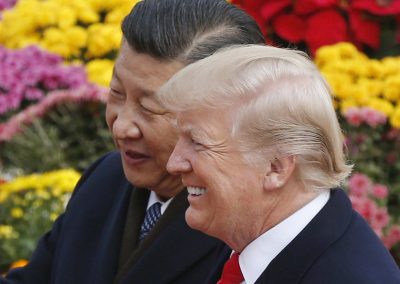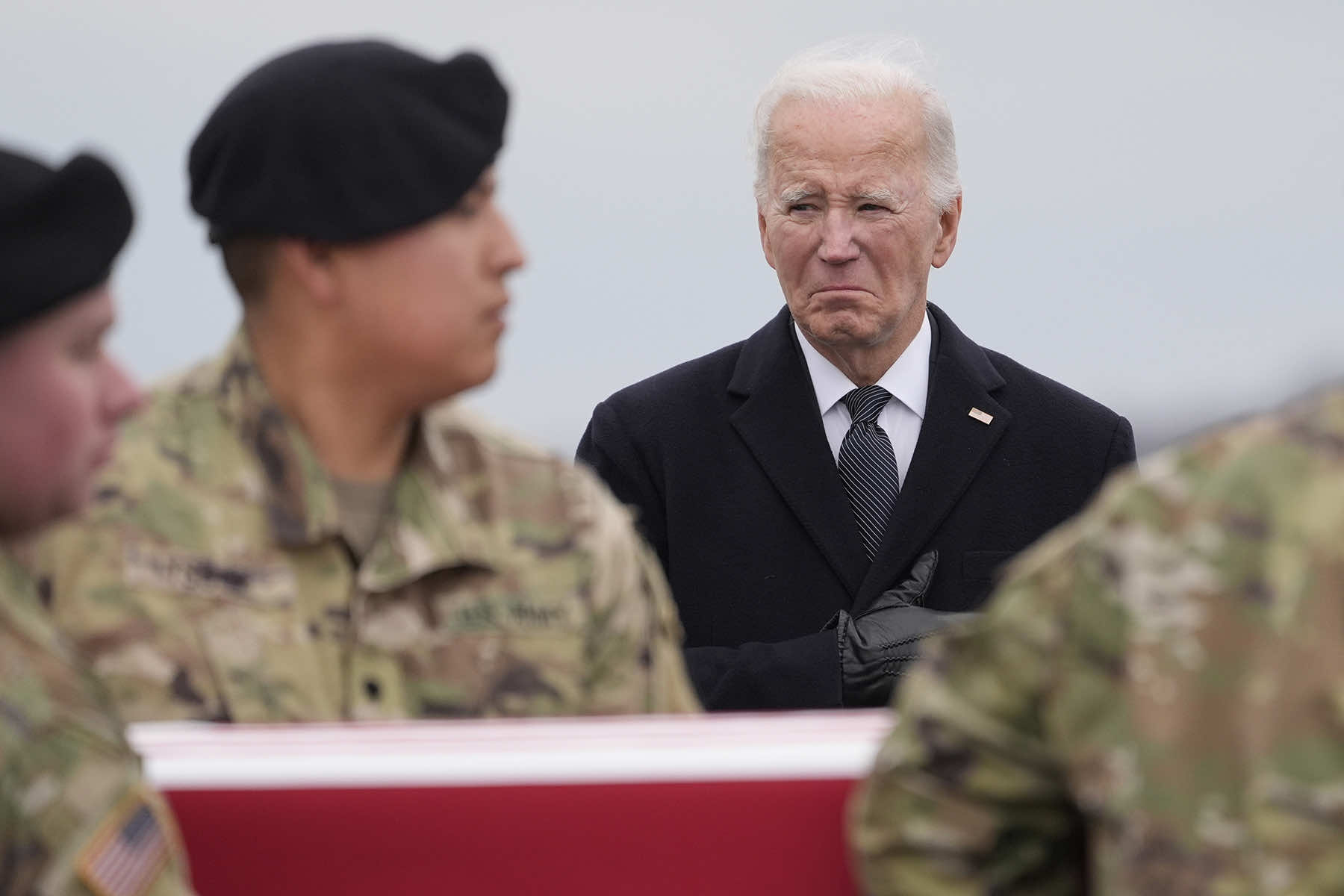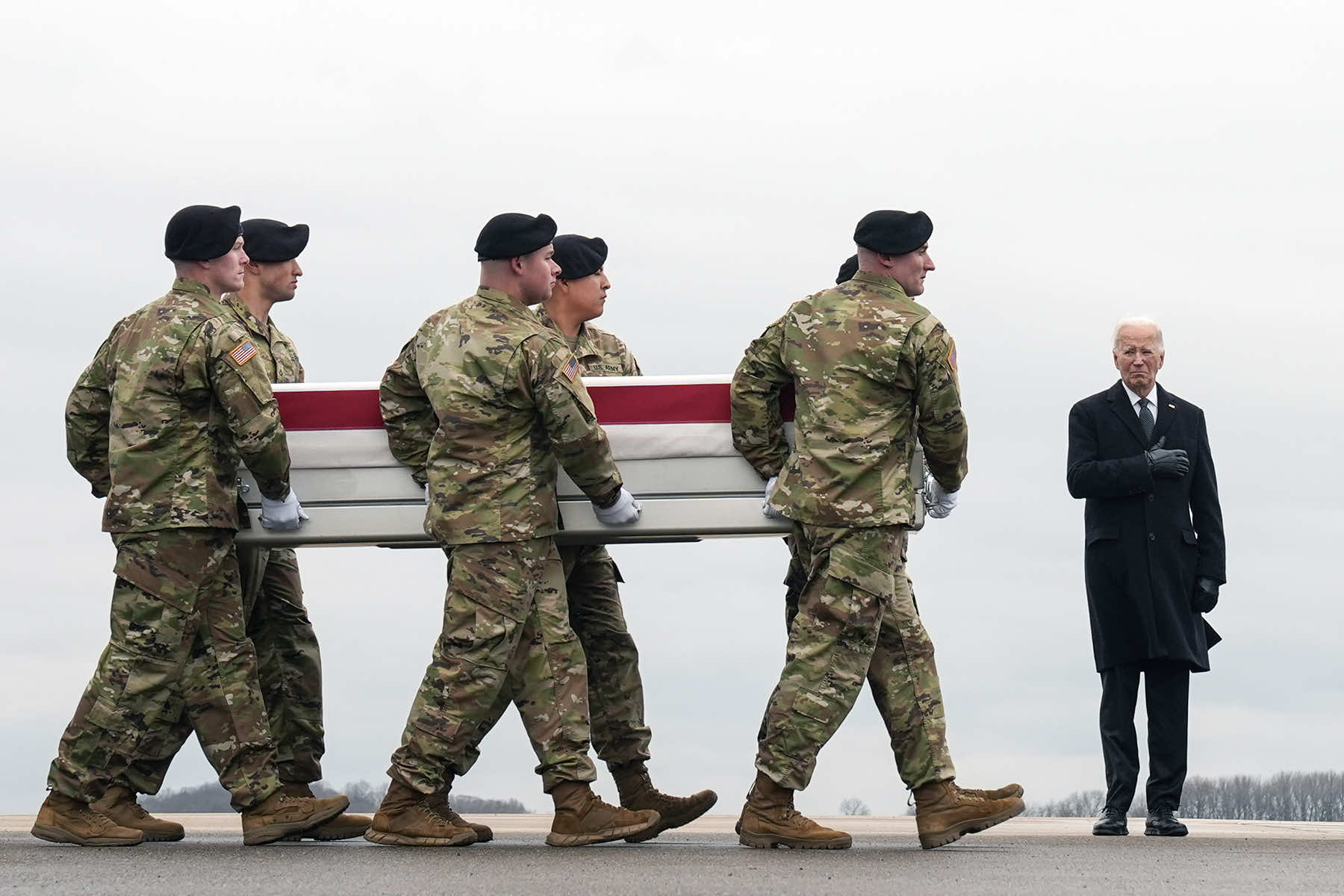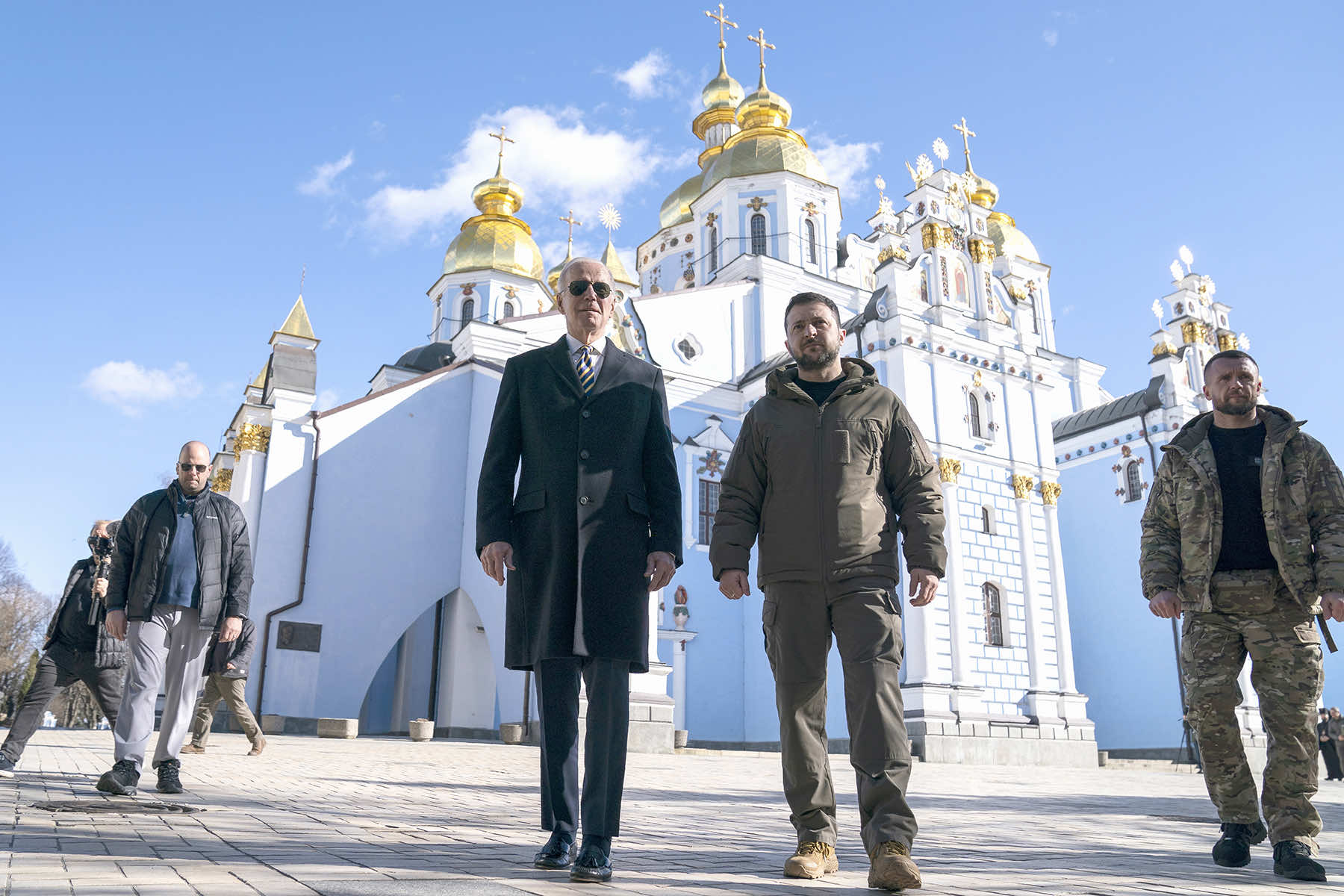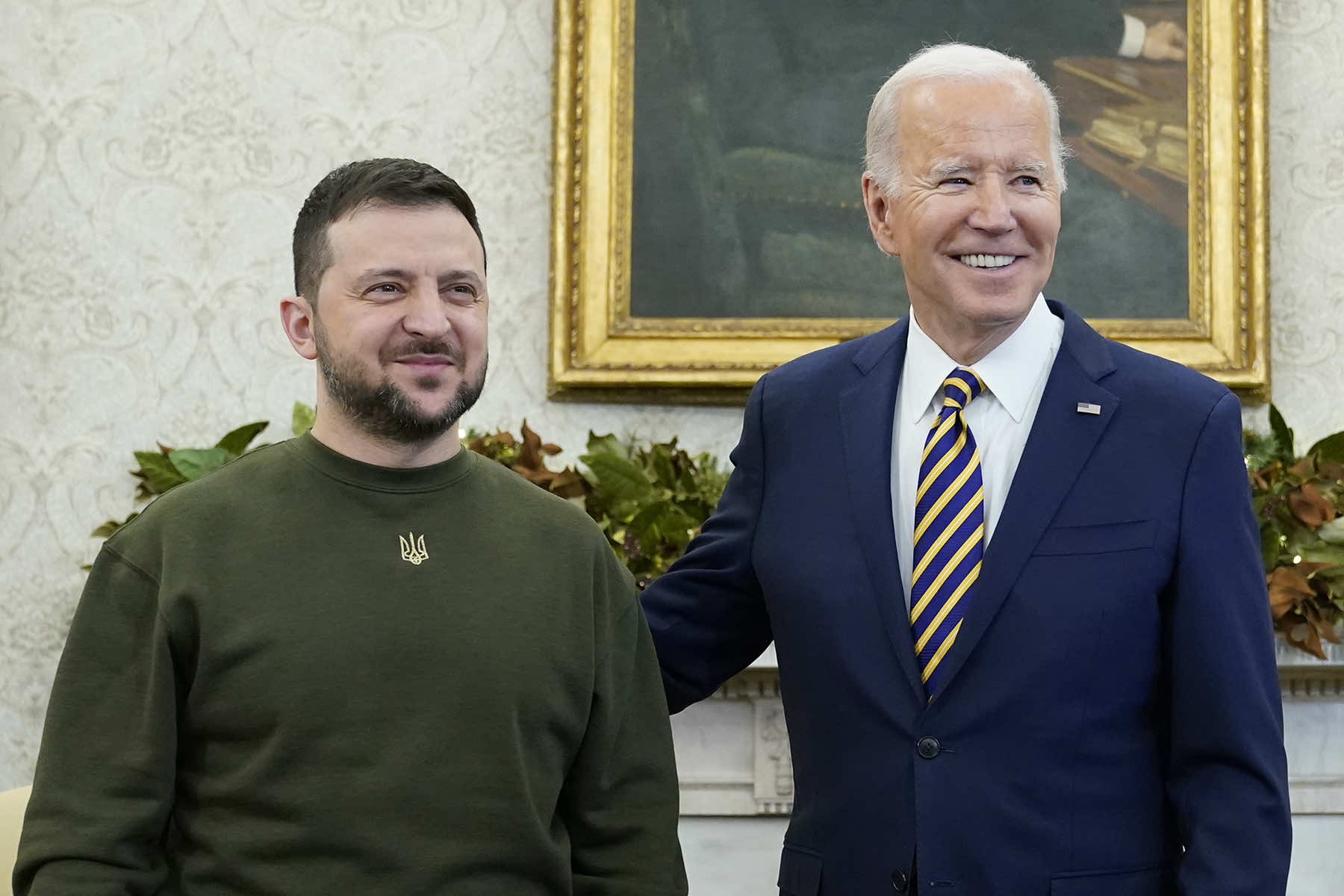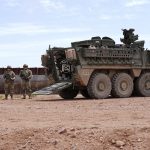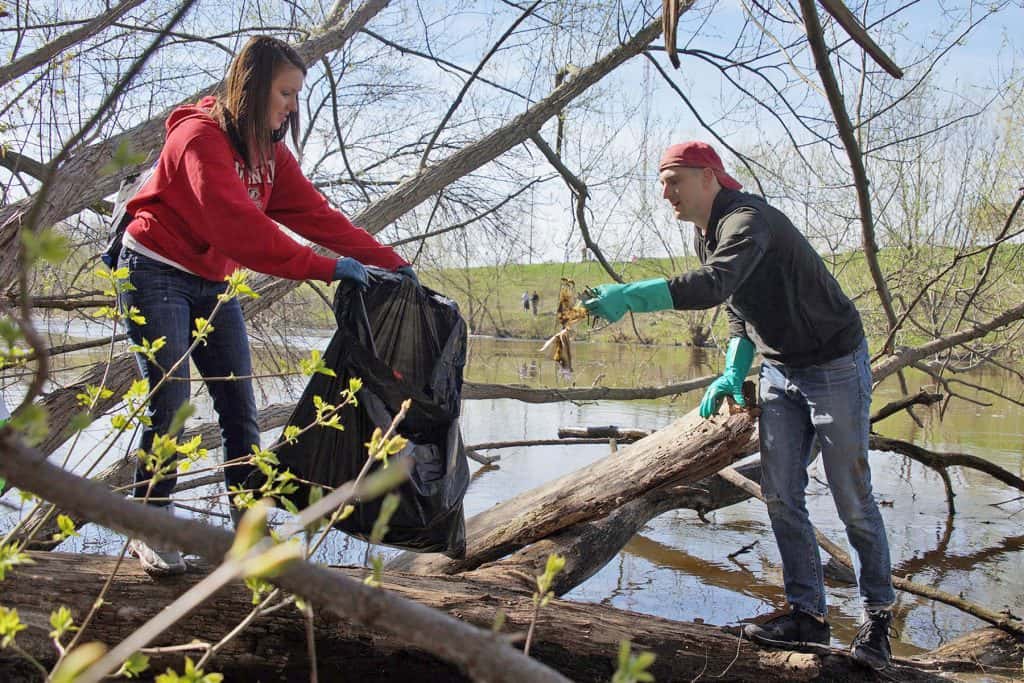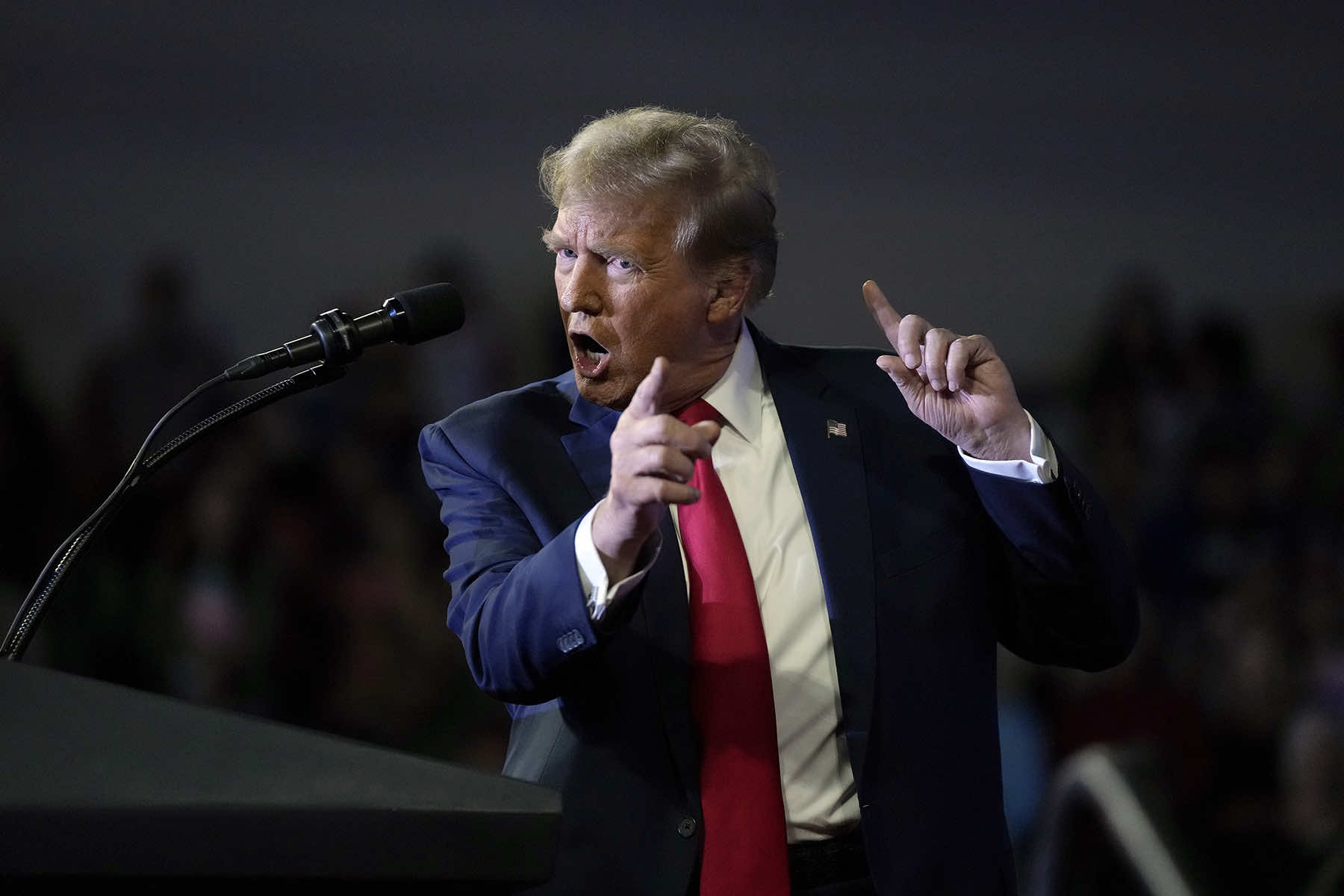
As chances rise of a Joe Biden-Donald Trump rematch in the U.S. presidential election, America’s allies are bracing for a bumpy ride.
Many worry that a second term for Trump would be an earthquake, but tremors already abound — and concerns are rising that the U.S. could grow less dependable regardless of who wins. With a divided electorate and gridlock in Congress, the next American president could easily become consumed by manifold challenges at home — before even beginning to address flashpoints around the world, from Ukraine to the Middle East.
French President Emmanuel Macron’s recent verdict was blunt: America’s “first priority is itself.”
The first Trump administration stress-tested the bonds between the U.S. and its allies, particularly in Europe. Trump derided the leaders of some friendly nations, including Germany’s Angela Merkel and Britain’s Theresa May, while praising authoritarians such as Turkish President Recep Tayyip Erdogan and Russian leader Vladimir Putin. He has called China’s Xi Jinping “brilliant” and Hungary’s Viktor Orbán “a great leader.”
In recent campaign speeches, Trump remains skeptical of organizations such as NATO, often lamenting the billions the U.S. spends on the military alliance whose support has been critical to Ukraine’s fight against Russia’s invasion.
He said at a rally on February 11 that, as president, he had warned NATO allies he would encourage Russia “to do whatever the hell they want” to countries that did not pay their way in the alliance.
Trump went further, saying he had told a NATO member that he would, in fact, “encourage” Russia to do as it wishes in that case.
“‘You didn’t pay? You’re delinquent?'” Trump recounted saying. “‘No I would not protect you. In fact, I would encourage them to do whatever the hell they want. You gotta pay. You gotta pay your bills.'”
Trump also wrote on his social media network that in future the U.S. should end all foreign aid donations and replace them with loans.
NATO allies agreed in 2014, after Russia annexed Ukraine’s Crimean Peninsula, to halt the spending cuts they had made after the Cold War and move toward spending 2% of their GDPs on defense by 2024.
NATO Secretary-General Jens Stoltenberg warned that Trump risked endangering U.S. troops and their allies. “Any suggestion that allies will not defend each other undermines all of our security, including that of the U.S., and puts American and European soldiers at increased risk,” he said in a statement on February 11.
President Biden, meanwhile, has made support for Ukraine a key priority and moral imperative. But President Biden’s assertion after his election in 2020 that “America is back” on the global stage has not been entirely borne out. Congressional Republicans have stalled more military aid for Ukraine, while America’s influence has been unable to contain conflict in the Middle East.
Russia, meanwhile, is busy bolstering ties with China, Iran, and North Korea and trying to chip away at Ukraine’s international support.
Bronwen Maddox, director of the international affairs think tank Chatham House, said arguments supportive of another Trump presidency underestimate “how destabilizing” he has been, and likely would continue to be if reelected.
“For those who say his first term did not do much damage to international order, one answer is that he took the U.S. out of the JCPOA, the deal to curb Iran’s nuclear program. Iran’s acceleration of its work since then has left it a threshold nuclear weapon state,” she said during a recent speech on the year ahead.
The defense minister in Poland, which has been under Russian control more often than not since the end of the 18th century, “no election campaign is an excuse for playing with the security of the alliance.”
White House spokesperson Andrew Bates responded to Trump’s comments by saying that “encouraging invasions of our closest allies by murderous regimes is appalling and unhinged – and it endangers American national security, global stability, and our economy at home.”
Trump’s remarks come as Ukraine remains mired in its efforts to stave off Russia’s 2022 invasion and as Republicans in Congress have become increasingly skeptical of providing additional aid money to the country as it struggles with stalled counteroffensives and weapons shortfalls.
Trump also called for the end of foreign aid “WITHOUT “STRINGS” ATTACHED,” arguing that the U.S. should dramatically curtail the way it provides money.
“FROM THIS POINT FORWARD, ARE YOU LISTENING U.S. SENATE(?), NO MONEY IN THE FORM OF FOREIGN AID SHOULD BE GIVEN TO ANY COUNTRY UNLESS IT IS DONE AS A LOAN, NOT JUST A GIVEAWAY,” Trump wrote on his social media network in all-caps letters.
Trump went on to say the money could be loaned “ON EXTRAORDINARILY GOOD TERMS,” with no interest and no date for repayment. But he said that, “IF THE COUNTRY WE ARE HELPING EVER TURNS AGAINST US, OR STRIKES IT RICH SOMETIME IN THE FUTURE, THE LOAN WILL BE PAID OFF AND THE MONEY RETURNED TO THE UNITED STATES.”
During his 2016 campaign, Trump alarmed Western allies by warning that the United States, under his leadership, might abandon its NATO treaty commitments and only come to the defense of countries that meet the alliance’s guidelines by committing 2 percent of their gross domestic products to military spending.
Trump, as president, eventually endorsed NATO’s Article 5 mutual defense clause, which states that an armed attack against one or more of its members shall be considered an attack against all members. But he often depicted NATO allies as leeches on the U.S. military and openly questioned the value of the military alliance that has defined American foreign policy for decades.
“NATO has been a success story for the last 75 years,” said GOP presidential rival Nikki Haley, who was Trump’s U.N. ambassador. She told CBS’ “Face the Nation” on February 11 that after the 9/11 attacks, “we needed a lot of friends. We can never get into the point where we don’t need friends. Now, we do want NATO allies to pull their weight. But there are ways you can do that without sitting there and telling Russia, have your way with these countries.”
Under NATO’s mutual defense clause, Article 5 of its founding treaty, all allies commit to help any member who comes under attack. The article has only ever been activated once – by the U.S. in the wake of the September 11, 2001 attacks.
As of 2022, NATO reported that seven of what are now 31 NATO member countries were meeting that obligation — up from three in 2014. Russia’s 2022 invasion of Ukraine has spurred additional military spending by some NATO members.
Trump has often tried to take credit for that increase, and bragged again on February 10 that, as a results of his threats, “hundreds of billions of dollars came into NATO” — even though countries do not pay NATO directly.
NATO has undertaken its biggest military buildup since the Cold War since Russia invaded Ukraine in February 2022.

